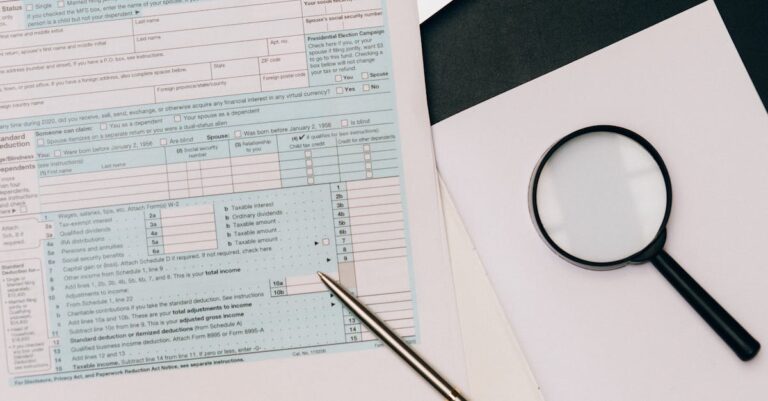Table of Contents
ToggleIn a world where hustle culture reigns supreme, the “no days off” mantra has become the battle cry for ambitious go-getters. It’s like the gym membership no one wants to admit they have—everyone talks about it, but few actually enjoy the grind. Yet, there’s something undeniably alluring about the idea of relentless dedication. Who wouldn’t want to be the superhero of their own success story?
But wait a minute! Is the quest for constant productivity really the golden ticket to success, or is it just a one-way ticket to burnout city? As we dive into the world of the “no days off” mindset, we’ll explore the fine line between determination and exhaustion. Buckle up, because this journey might just have you questioning whether taking a break is the secret ingredient to lasting success.
Overview of the No Days Off Mantra
The “no days off” mantra emphasizes relentless dedication. This mindset often attracts those driven by ambition and a desire for success. Working every day contributes to perceived productivity, leading to the belief that constant effort results in better outcomes. As a cultural phenomenon, this attitude manifests itself in various fields, from business to fitness.
Ambitious individuals often adopt this mentality to outpace their competition. They view breaks as a weakness rather than a necessary component of long-term achievement. Many successful figures advocate for this approach, reinforcing its popularity and perceived effectiveness. However, it’s crucial to question the sustainability of such intensity.
Numerous studies indicate that continuous work increases the risk of burnout. Exhaustion diminishes cognitive effectiveness and productivity. Breaks tend to enhance creativity and problem-solving skills, contrary to the belief that they hinder progress. In fact, a balanced approach can lead to more innovative solutions and improved performance.
Despite its appeal, the “no days off” philosophy may not be universally beneficial. Recognizing the signs of burnout and understanding the importance of recovery can lead to better outcomes. Prioritizing rest alongside work can create a more sustainable path to success. As this discussion unfolds, the value of harmony between work and recuperation becomes increasingly evident.
Benefits of Embracing the No Days Off Mantra
The “no days off” mantra carries significant benefits for those who embrace it, particularly in terms of discipline and productivity.
Increased Discipline and Focus
Adopting this mentality fosters greater discipline. Individuals often find themselves more committed to their goals. Consistent effort leads to stronger habits, establishing a routine that encourages concentration. Enhanced focus emerges as distractions diminish. As a result, dedication to continuous improvement sharpens skills and increases efficiency. Those who practice this mantra tend to build resilience against setbacks. This resilience reinforces a mindset oriented toward long-term achievement.
Enhanced Productivity
The relentless pursuit of work can drive significant productivity gains. When one fully commits to a task, momentum builds over time. Increased output often follows as individuals dive deeper into their projects. Improved time management also surfaces as focus intensifies, resulting in less wasted time. Engagination in work fosters innovation and fresh ideas, stimulating creative solutions. Those who view every day as an opportunity to progress typically achieve more in shorter periods. Overall, this approach can lead to notable advancements and successes in various endeavors.
Potential Drawbacks of the No Days Off Mantra
The “no days off” mantra has critical drawbacks that warrant attention, especially concerning mental health and life balance.
Burnout and Mental Health Concerns
Burnout frequently arises from constant work and can severely impact mental well-being. Studies reveal that prolonged effort without breaks leads to emotional exhaustion, diminished motivation, and increased stress levels. Individuals often experience decreased productivity, making it harder to maintain focus and effectiveness. The persistent grind can contribute to anxiety and depression, as those caught in this cycle feel overwhelmed by their responsibilities. Acknowledging these mental health risks emphasizes the need for a sustainable approach to work that prioritizes self-care and recovery.
Work-Life Balance Issues
Work-life balance frequently suffers under the weight of the “no days off” mentality. Individuals may find personal relationships and leisure activities neglected in favor of relentless work. Loneliness and disconnection from friends and family can result from the lack of downtime. Long-term commitment to this mantra often means sacrificing hobbies, relaxation, and rejuvenation opportunities. Compromise is essential, as maintaining healthy relationships enhances overall happiness and productivity. Fostering boundaries between work and personal life can create a more fulfilling lifestyle, allowing for success without sacrificing well-being.
Real-Life Examples of the No Days Off Mantra
Numerous individuals embody the “no days off” mantra in their pursuit of success, showcasing both achievements and challenges.
Success Stories
Entrepreneurs often exemplify unwavering commitment to their ambitions. Take Elon Musk, who emphasizes tireless work habits, reportedly logging over 80 hours each week to push boundaries and innovate. His relentless pursuit led to groundbreaking companies like Tesla and SpaceX. Similarly, Dwayne “The Rock” Johnson follows a rigorous routine, combining fitness with daily work commitments, highlighting focus and discipline as key to his career. Successful athletes, such as Kobe Bryant, attributed their achievements to this mindset, pushing themselves beyond limits to reach peak performance. These figures demonstrate how continuous effort and dedication yield notable success.
Cautionary Tales
Yet, the “no days off” approach has its downsides. Many professionals experience burnout after relentless work periods. Consider the case of a start-up founder who prioritized work above all, only to face severe physical and emotional fatigue. Mental health experts often warn against neglecting self-care, noting that overexertion can diminish long-term productivity and morale. Employees in high-pressure environments report increased stress and strained relationships due to constant work demands. The struggles of these individuals highlight the importance of balance and recovery, illustrating that relentless effort can sometimes lead to negative outcomes.
The “no days off” mantra can inspire remarkable dedication and productivity. However it’s crucial to recognize the potential pitfalls of this relentless approach. Balancing ambition with self-care is essential for long-term success. Taking breaks isn’t a sign of weakness; it’s a strategy for maintaining mental health and enhancing creativity.
By fostering boundaries between work and personal life individuals can achieve their goals without sacrificing their well-being. The journey to success should include moments of rest and reflection, allowing for rejuvenation and renewed focus. Embracing a more sustainable mindset not only promotes better outcomes but also enriches personal fulfillment and relationships. Prioritizing recovery alongside hard work can lead to a more harmonious and productive life.







